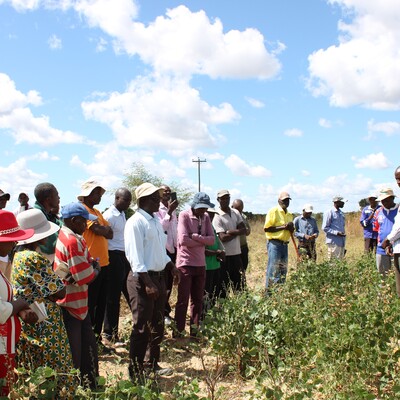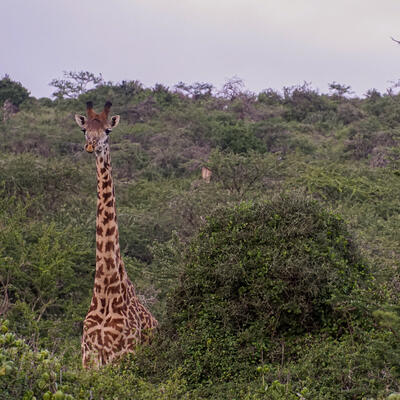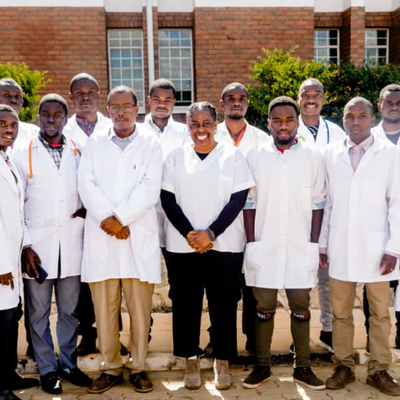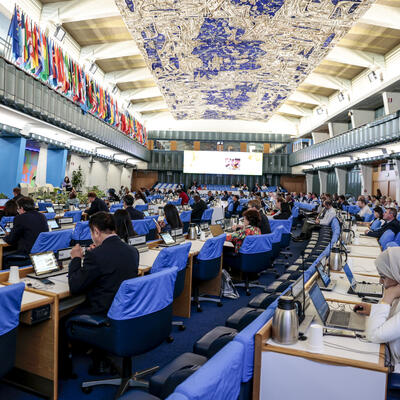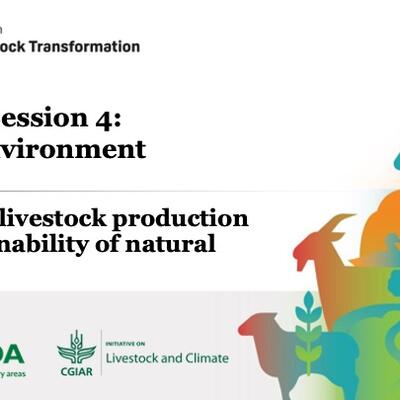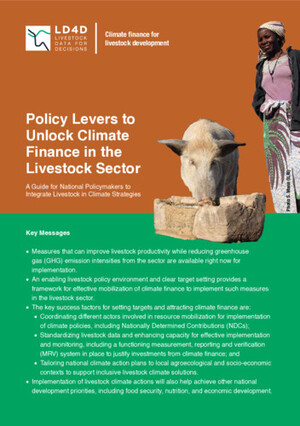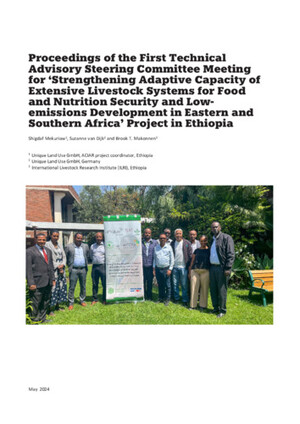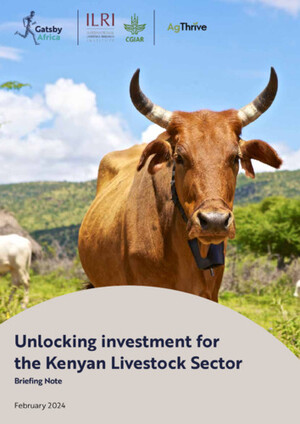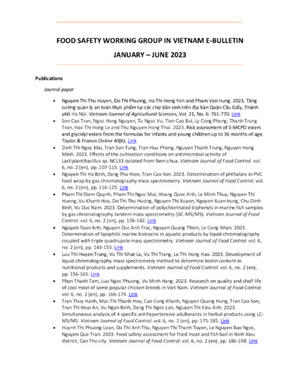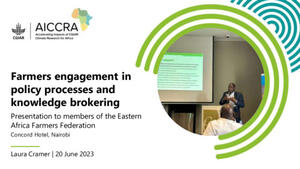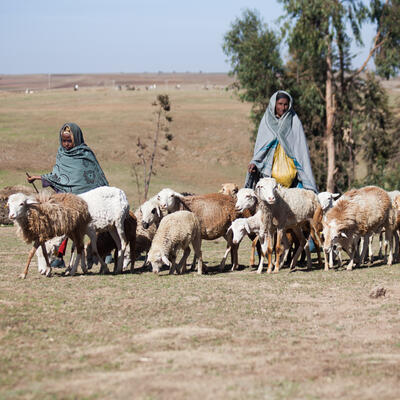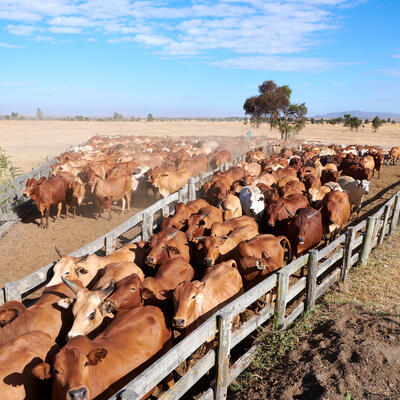
Jimmy Smith, director general at the International Livestock Research Institute and champion of sustainable livestock, set to retire
Jimmy W. Smith, the director general of the International Livestock Research Institute (ILRI), is set to retire at the end of this month, after an 11-year tenure at ILRI marked by steady growth, scientific breakthroughs, and beneficial partnerships with a wide array of governmental and non-governmental organizations.
Smith has held a long and distinguished career in international development, with increasingly senior positions at the Caribbean Agriculture Research and Development Institute, the Canadian International Development Agency (CIDA, now GAC), the World Bank and CGIAR. He is known as a champion for sustainable livestock across the world, bringing science-based nuance and clarity to today’s sometimes polarized livestock debates. Under his leadership, the institute has more than doubled in size and launched major new programs demonstrating how livestock contributes to key sustainable development issues such as health, nutrition, gender and the environment. Smith's success in growing ILRI has ensured the institute's livestock research for development agenda continues to deliver innovative solutions for animal agriculture across Africa and Asia, building on the legacy of over four decades as documented in the book, The Impact of the International Livestock Research Institute.
Born in Guyana to parents who raised cattle and grew citrus fruit, he graduated from the Tuskegee Institute (now Tuskegee University) and received his master’s and PhD at the University of Illinois in animal science in 1986.
Elsa Murano, the chair of ILRI’s board of trustees and Director of the Norman Borlaug Institute for International Agriculture & Development at Texas A&M University, said that Smith is a ‘wise and kind person with a passion for livestock’, and that ‘he was the right person at the right time’ to head up the institute.
Smith’s tenure at ILRI has been marked by his commitment to an integrated CGIAR, with livestock having an important role. Whether in research programs or integrated CGIAR campus engagement, Smith has always sought to ensure that the ‘whole is greater than the sum of its constituent parts’.
Many of ILRI’s innovations during Smith’s tenure reflect his commitment to an integrated CGIAR. ILRI leads the CGIAR Antimicrobial Resistance Hub, the One Health Research, Education and Outreach Centre in Africa (OHRECA), and the CGIAR GENDER Impact Platform, all of which bring together multiple CGIAR centres and partners. Smith also led efforts to diversify and unify ILRI’s staff. In 2021, ILRI had over 600 permanent staff 39 percent of whom were female and included some 40 nationalities.
During the COVID-19 pandemic, Smith’s leadership style of focusing on staff well-being shone through. He hosted weekly 'roundups’ or townhalls, giving the institute’s management a chance to ensure that all staff were safe and to keep the business of ILRI going and the staff feeling connected. The warmth and vivacity of those meetings immediately created a sense of community and purpose amongst ILRI staff and those hosted by ILRI.
ILRI also brought its One Health science to bear on tackling the COVID-19 pandemic, firstly through repurposing its facilities to support the Kenyan government’s efforts to test for the virus, and subsequently using its advanced genotyping facilities to support Kenya and continent-wide efforts on genomic surveillance.
Smith has long argued for the importance of livestock for development. While livestock account for 40% of agricultural GDP (with a range from 15 to 80% in LMICs) , ‘Only a small portion of total overseas development assistance goes to agriculture, and of that, only a tiny fraction is devoted to livestock.’ Smith made it his mission to grow those numbers. ‘The goal was not to detract from the rest of agriculture, but to grow the pie for livestock and agriculture generally. And I think I have.’ Known for his expression that ‘where you stand on the issues very much depends on where you sit,’ Smith is known for patiently elaborating on all the ways in which for example, cows in Canada, might have different functions than cows in Kenya in their importance for people’s basic nutritional and livelihood needs.
Smith is beloved by his colleagues for his warmth and leadership. ‘He has a special way of leading the institute—with a lot of human reflections and warmth and great ambitions for development, diversity and equity,’ said Hung Nguyen, the co-leader of Animal and Human Health Program at ILRI. Dieter Schillinger, deputy director general for biosciences at ILRI, lauded Smith’s vision and marketing talent. ‘I remember the first time I saw him do a presentation, I was immediately struck by how convincing and inspiring he was,’ said Schillinger.
At events held to honour his tenure at the institute at Addis Ababa and Nairobi, senior government officials, the diplomatic community, CGIAR leaders and ILRI partners took turns praising Smith’s leadership.
A representative from the Kenya Ministry of Health praised ILRI for its response during the initial phases of the COVID-19 pandemic, and promised that the ministry would continue to work with Smith in other capacities.
Harry Kimtai, the principal secretary, State Department for Livestock in Kenya and ILRI Board member, said that Smith was leaving an enormous legacy and averred that while he was retiring, he would still be needed for his knowledge and wisdom.
Canadian High Commissioner to Kenya, Christopher Thornley expressed his pride in Smith, a fellow Canadian, and noted Smith’s unique talent operating in both government and scientific communities.
Marco Ferroni, the chair of the CGIAR System Board and ILRI board member, lauded Smith’s commitment to CGIAR in its host countries and the valuable support they have provided. Board member Regassa Fikru, state minister in the Ministry of Agriculture (Ethiopia) highlighted ILRI's contributions to Ethiopia's livestock sector, including positioning it for growth and supporting the country's agricultural transformation plans. He was similarly honored by partners and staff alike at many of ILRI's other locations – Vietnam, India, Tanzania and Uganda.
For his part, Smith said that while it was time for him to go, ‘my family and I have always felt at home here and I will never really leave.’ He pointed out that by the time the world population stabilizes, the world will need 50% more food that it does now. ‘We know the work of the CGIAR, the work of ILRI, has never been more needed and must be redoubled I hope to continue to be part of those efforts and I know ILRI has been put on the right track to meet the challenges ahead.’
Smith’s tenure will end 31 December 2022.
Listen to an episode of The Boma podcast featuring Jimmy's reflections on his tenure as director general: ILRI says farewell to Director General Jimmy Smith






